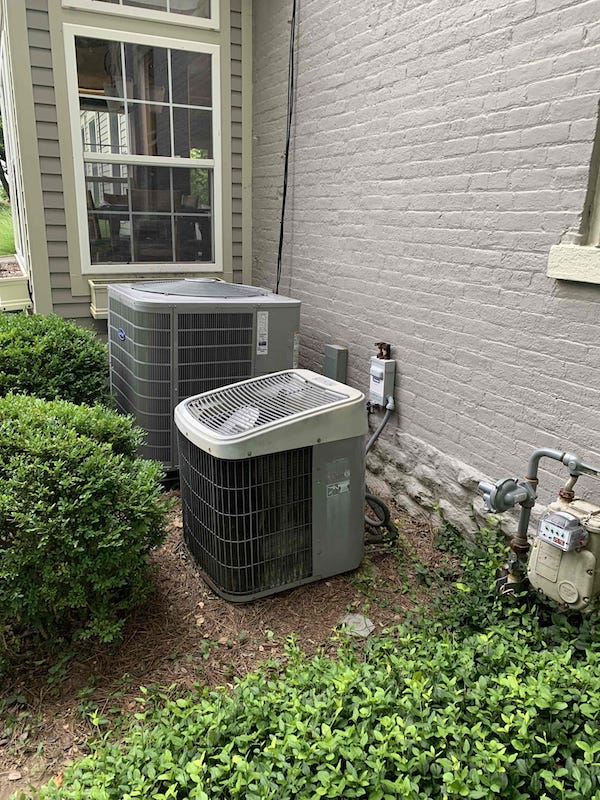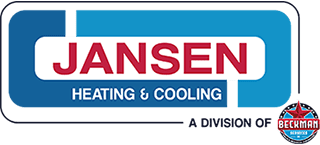10 Red Flags Your Cooling System Isn’t Functioning Efficiently

One of the reasons to have your cooling system checked by a trusted HVAC company like Jansen in the spring is to make sure the system is functioning efficiently. If it is not running properly, your utility bills could be higher than necessary, and your system might not last its expected lifespan. That would mean having to replace your equipment (not cheap) sooner than needed.
Even before your HVAC technician makes their spring maintenance visit, if you notice any of the red flags listed below, contact your heating and air conditioning supplier to make sure your home cooling system is operating safely, as well as efficiently:
1. Weak airflow
- If the air coming from your vents is weak or uneven, there could be a problem with the blower motor, ducts or air filter. Your blower motor may need repairs, your ducts may be clogged or your air filter may need to be changed.
2. Warm air instead of cool air
- If your central air conditioning or heat pump is blowing warm or room-temperature air, check the thermostat setting. If it’s set correctly and still not cooling, your refrigerant level may be low, or the compressor could be failing.
3. Higher-than-normal energy bills
- A sudden spike in your electricity bill without a change in usage patterns could indicate your AC is working harder than necessary. This could be due to dirty coils, low refrigerant or an aging system.
4. Frequent cycling on and off
- If your system turns on and off frequently (short cycling), you could have a malfunctioning thermostat, a clogged filter or an improperly-sized unit.
5. Excessive indoor humidity
- If your home feels muggy, your system may need an AC repair or recharging with refrigerant.
The ideal indoor humidity level in the summer is generally between 40–60%. This range is comfortable for most people and helps keep your home from being too dry or too humid.
High humidity is particularly bad for six reasons:
- Humidity levels can affect your health, comfort and the life of your possessions.
- High humidity can encourage the growth of mold, mildew and fungi.
- High humidity can make it harder for your sweat to evaporate, which can lead to excessive sweating, heat rash and itchiness.
- Mold spores can cause respiratory ailments and other health issues.
- Excessive humidity can make allergies and asthma more severe.
- Too much humidity can cause damage to your home, including peeling paint and wallpaper, wood expansion and structural damage.
6. Strange noises
- Grinding, squealing or banging sounds from your air conditioning unit could indicate worn-out belts, loose parts or motor issues that require professional attention.
7. Unpleasant odors
- Musty smells may mean mold or mildew in your ducts, while a burning smell could indicate electrical problems.
8. Water leaks or ice build-up
- Water pooling around the unit or ice forming on the evaporator coils may point to clogged condensate lines, low refrigerant or airflow issues.
9. Inconsistent room temperatures
- If some rooms are significantly warmer than others, it could be due to ductwork problems, insulation issues or an aging system struggling to distribute cool air properly.
10. System is over 10-15 years old
- Older AC units lose efficiency over time. If your system is over a decade old and experiencing frequent issues, it might be time to consider a replacement.
While a new system is a major expense, nursing an inefficient system along for too long can affect both your energy bills and your summer home comfort.
If you’re experiencing any of these problems, scheduling a Jansen inspection is a smart idea. We can make a small air conditioning repair before the issue grows into an inconvenient, expensive breakdown.
